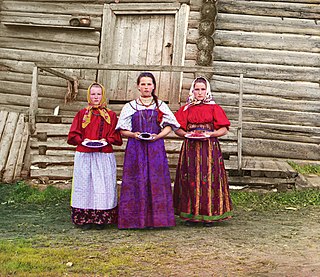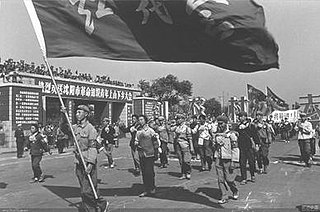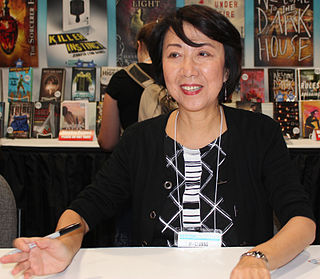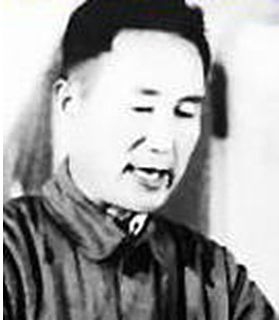The topic of this article may not meet Wikipedia's general notability guideline .(May 2019) (Learn how and when to remove this template message) |
A Year In Upper Felicity: Life in a Chinese Village During the Cultural Revolution is a book written and illustrated by the Communist (see biography [1] ) journalist [2] and author Jack Chen. Published in May 1973, [3] the book chronicles a year spent in a rural Chinese village (Upper Felicity) during the Cultural Revolution. It was based upon the author's stay in the village during 1969-1970.

The Cultural Revolution, formally the Great Proletarian Cultural Revolution, was a sociopolitical movement in China from 1966 until 1976. Launched by Mao Zedong, then Chairman of the Communist Party of China, its stated goal was to preserve Chinese Communism by purging remnants of capitalist and traditional elements from Chinese society, and to re-impose Mao Zedong Thought as the dominant ideology within the Party. The Revolution marked Mao's return to a position of power after the failures of his Great Leap Forward. The movement paralyzed China politically and negatively affected both the economy and society of the country to a significant degree.
Jack Chen is the son of the Chinese Trinidadian lawyer and Republican-era Chinese foreign minister Eugene Chen and his French-Creole wife Aisy.

Eugene Chen or Chen Youren, known in his youth as Eugene Bernard Achan, was a Chinese Trinidadian lawyer who in the 1920s became Sun Yat-sen's foreign minister. He was known for his success in promoting Sun's anti-imperialist foreign policies.
The book is organized around the four seasons. It describes the day-to-day life of rural Chinese peasants, and how city dwellers (such as the author) were sent to live and work with peasants to further the supposed imminent Socialist revolution that dominated Chinese politics in the 1960s.

A peasant is a pre-industrial agricultural laborer or farmer, especially one living in the Middle Ages under feudalism and paying rent, tax, fees, or services to a landlord. In Europe, peasants were divided into three classes according to their personal status: slave, serf, and free tenant. Peasants either hold title to land in fee simple, or hold land by any of several forms of land tenure, among them socage, quit-rent, leasehold, and copyhold.
Jack Chen wrote a number of other books about life in China, including: [4]
- Chen, Jack (1957). New earth. Southern Illinois University Press. – "Until now, very little firsthand information about Communist China has been available in this country. Of extraordinary importance, therefore, is this story of an early collective farm in East China’s Chekiang Province in the 1949–56 period."
- Chen, Jack (1975). Inside the cultural revolution. Macmillan. – "Here he gives a favorable recapitulation of the Cultural Revolution, written in a mixture of dry academese and Maoist jargon."
- Chen, Jack (1990). The Chinese of America. Harper & Row. – "Examines the events that led to the Tian'anmen Square massacre, discusses religious freedom in China, and speculates on whether a Chinese democracy could survive."

Zhejiang is an eastern coastal province of China. Zhejiang is bordered by Jiangsu and Shanghai to the north, Anhui to the northwest, Jiangxi to the west, and Fujian to the south. To the east is the East China Sea, beyond which lie the Ryukyu Islands of Japan.

Maoism, known in China as Mao Zedong Thought, is a communist political theory derived from the teachings of the Chinese political leader Mao Zedong, whose followers are known as Maoists. Developed from the 1950s until the Deng Xiaoping reforms in the 1970s, it was widely applied as the guiding political and military ideology of the Communist Party of China and as theory guiding revolutionary movements around the world. A key difference between Maoism and other forms of Marxism–Leninism is that peasants should be the bulwark of the revolutionary energy, led by the working class in China.











